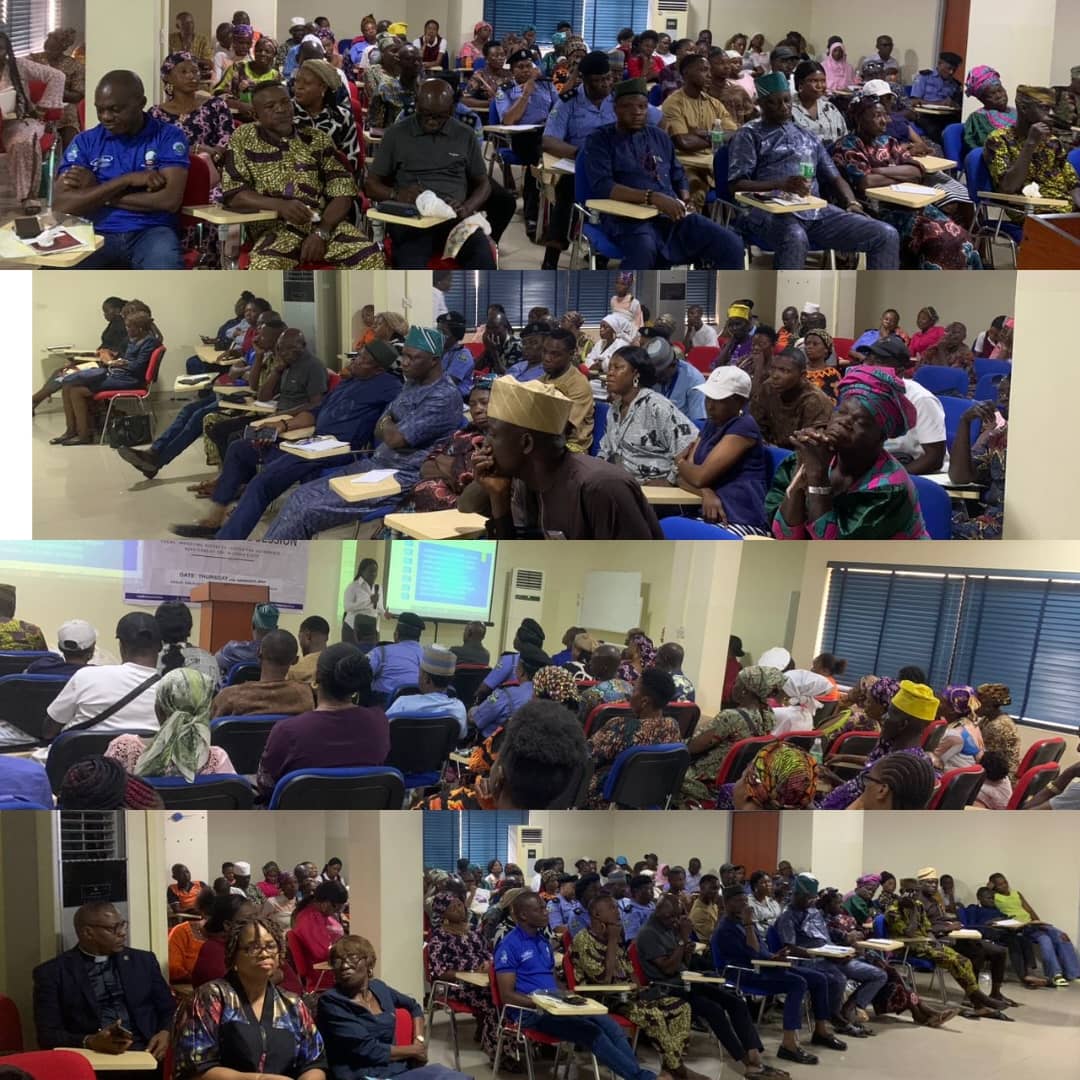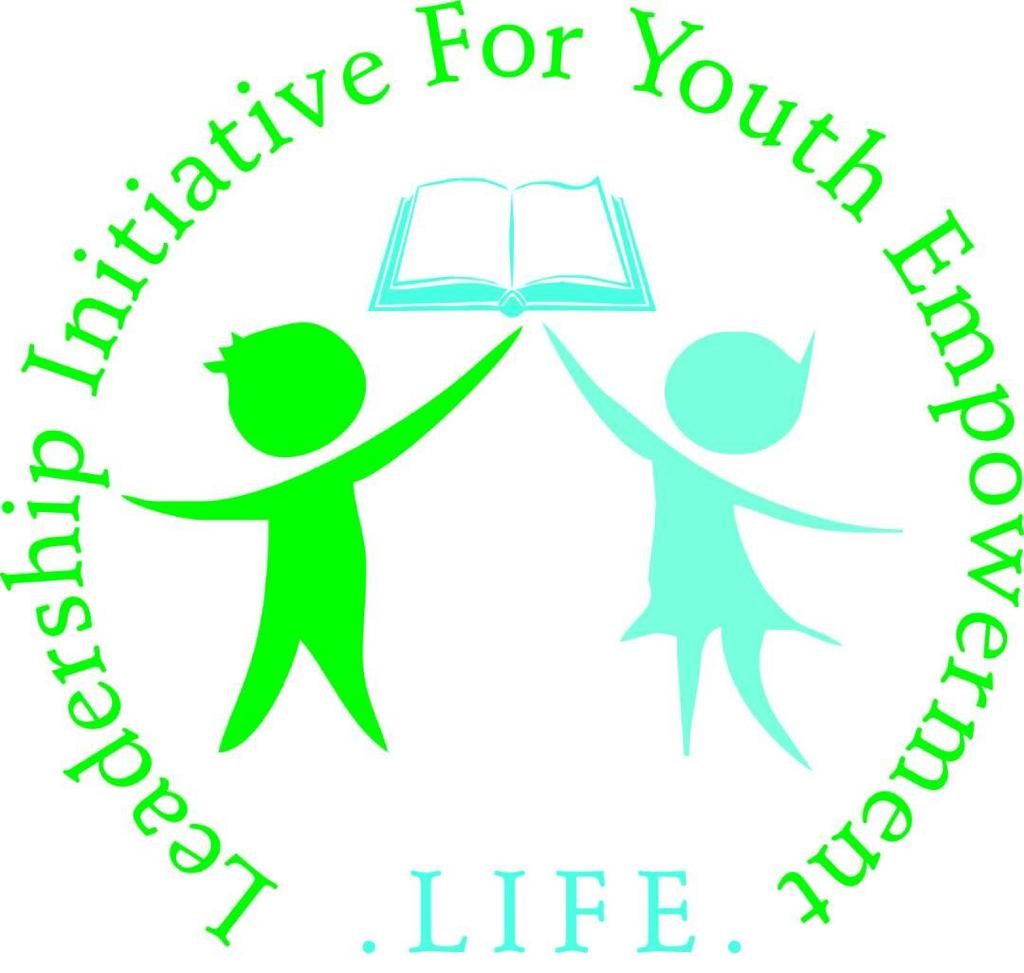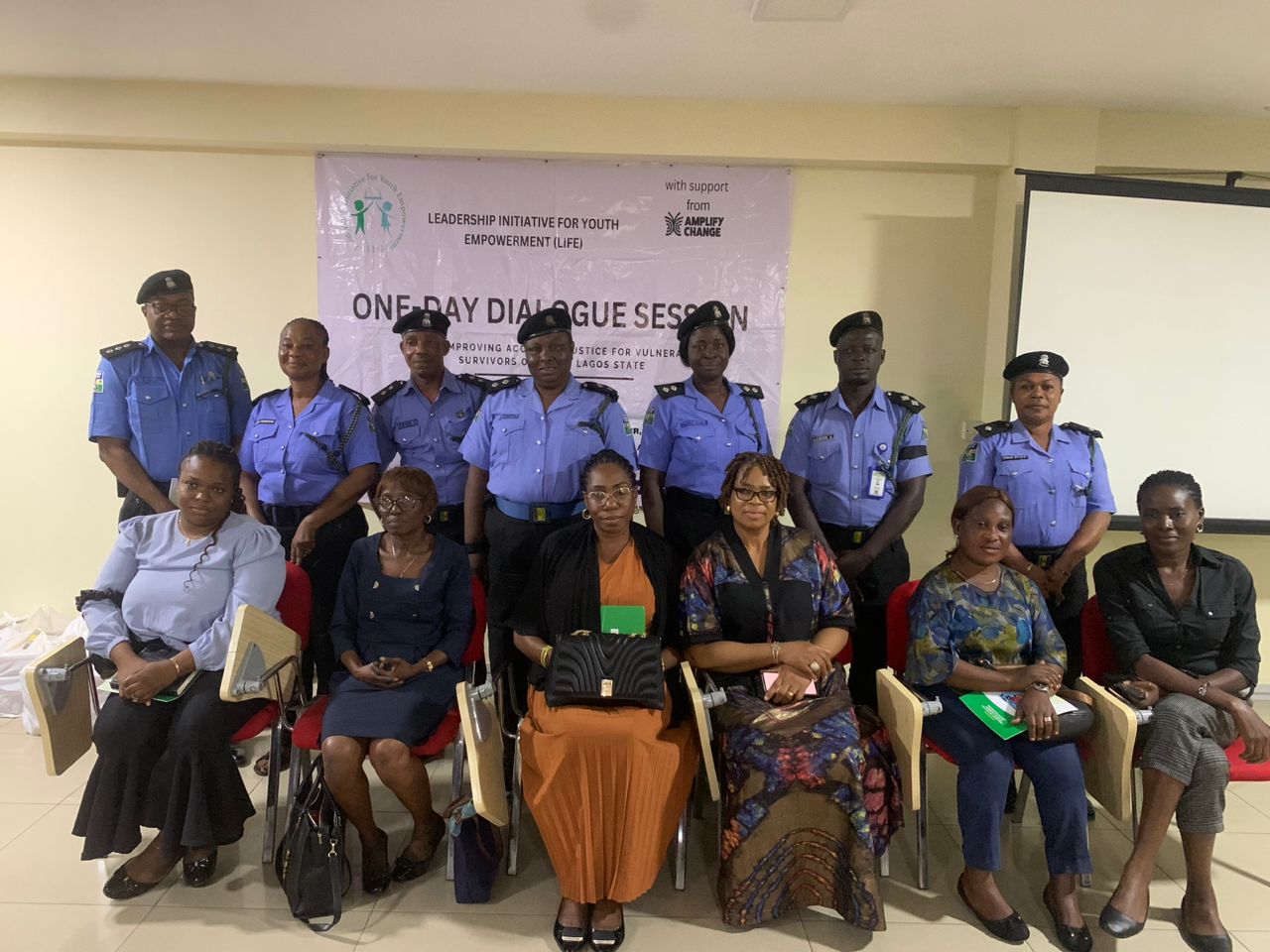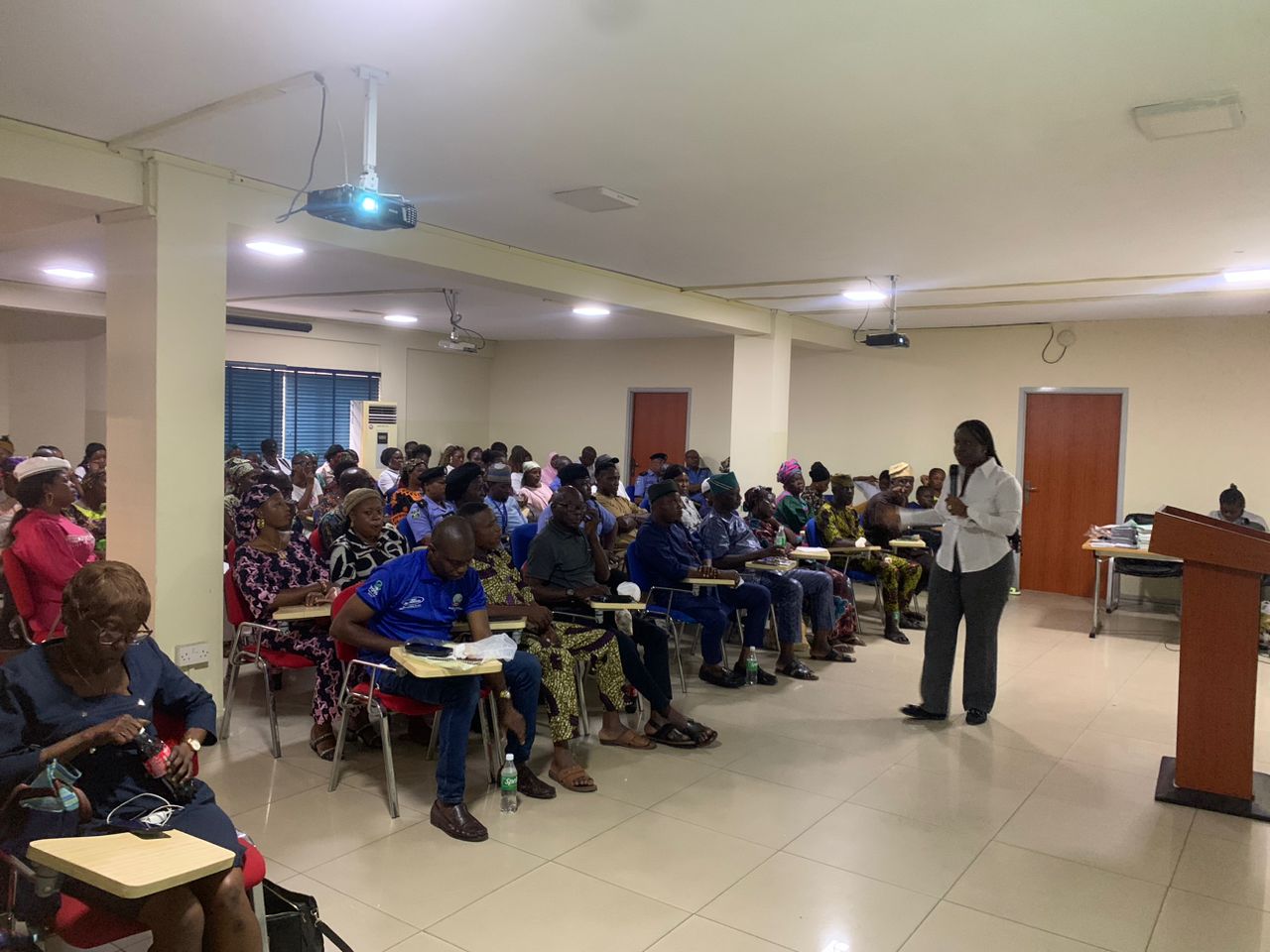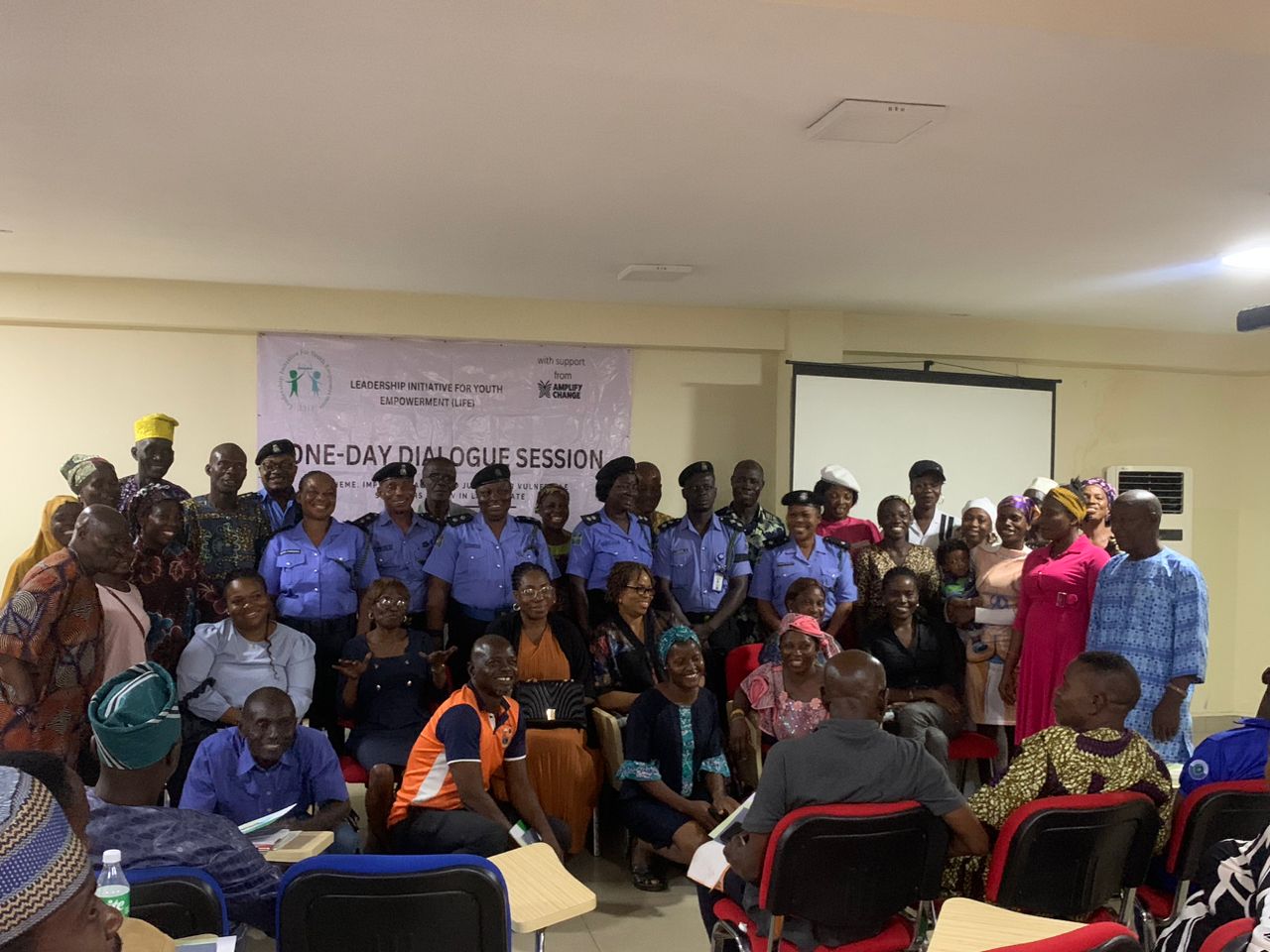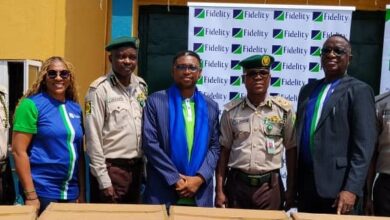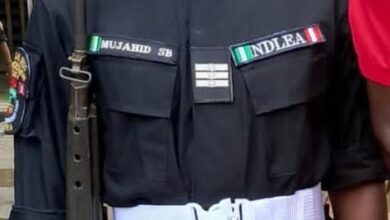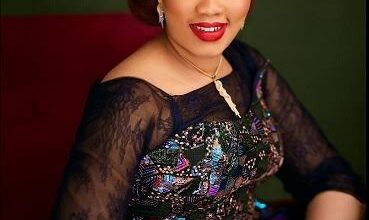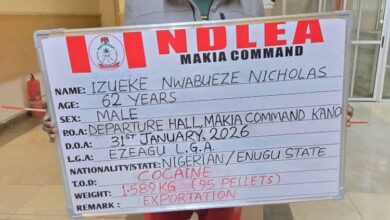LIFE harp on improving access to justice for vulnerable survivors of GBV in Lagos State
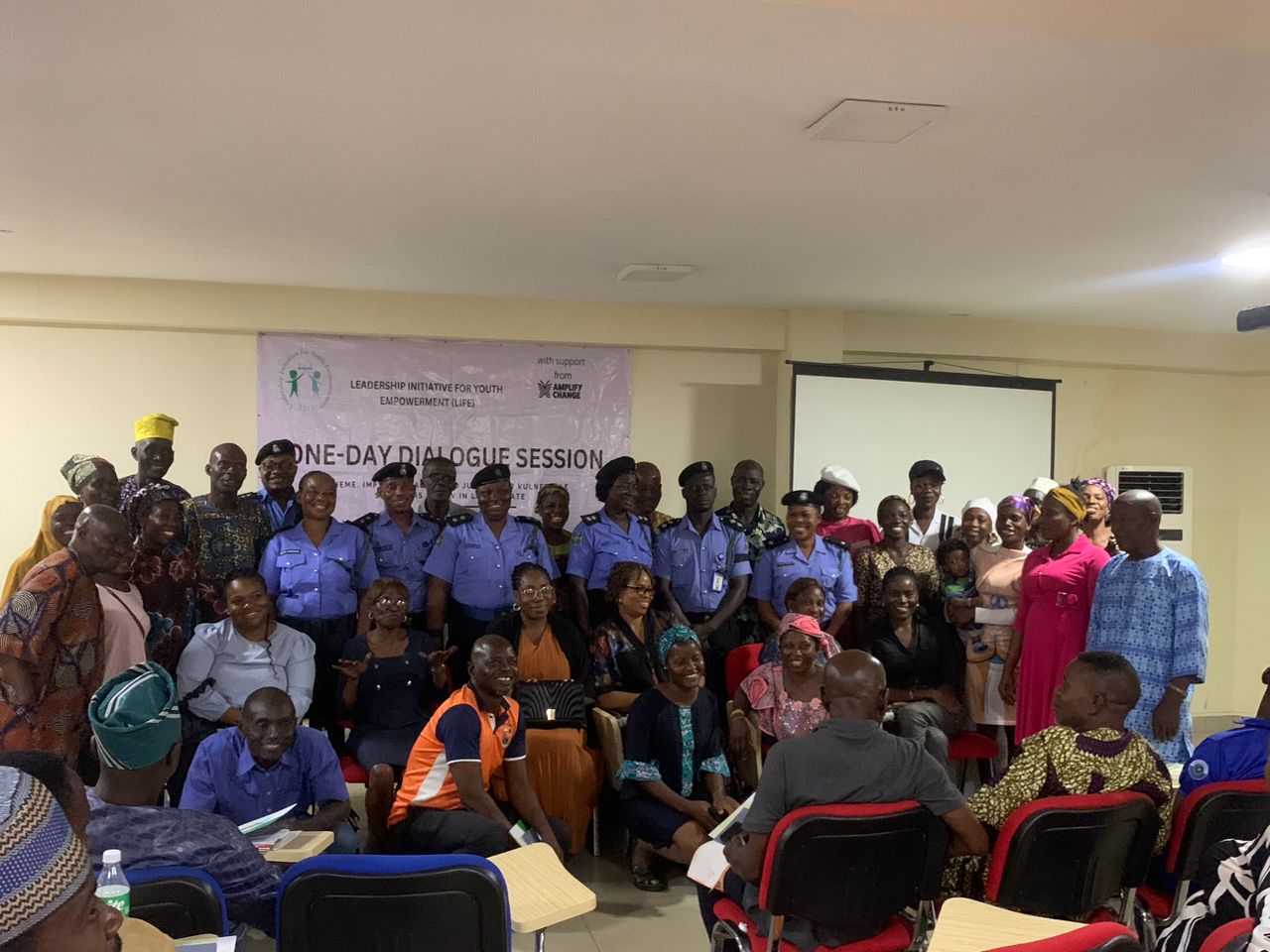
LIFE harp on improving access to justice for vulnerable survivors of GBV in Lagos State
By Naomi Onome
In a one-day dialogue session on Thursday, November 7th, 2024, the Leadership Initiative for Youth Empowerment (LIFE) advocates a significant change in improving access to justice for vulnerable survivors of gender-based violence in Lagos State.
The dialogue session, which registered the attendance of key stakeholders, is aimed at reaching out to the public on how to spot and get help on cases of abuse by contacting the respective agencies in charge of gender-based violence cases. Access to psychosocial support, good health care services, and a justice system for vulnerable survivors is primarily available through these various agencies to ensure the needed support as analyzed by facilitators.
According to the 2018 statistics report of the National Demographic Health Survey, 33% of women aged 13–49 in Nigeria have experienced physical or sexual violence; 24% have experienced only physical violence; 2% have experienced only sexual violence; and 7% have experienced both physical and sexual violence. The variation shows that women are more of the sufferers and victims when compared to men who face abuses. It is imperative to note that both genders suffer abuses regardless, but women have more records showing intensity.
LIFE’s overview of challenges faced by vulnerable survivors of GBV in accessing justice during the one-day of interpersonal communication states that gender-based violence is one of the most widespread human rights abuses but the least addressed in the world and has devastating consequences not only for victims but also for society. Abuses such as physical, sexual, psychological, and economic violence can be perpetrated by both genders. Challenges faced by abused survivors may include stigmatization, economic dependence, physical and mental health effects, cultural and religious factors, etc.
Joy Sokoya, center manager of Mirabel Centre and a facilitator at the event, commended the initiative by LIFE, which championed the course of bringing together stakeholders, volunteers, and agencies to dialogue on improving access to justice for vulnerable survivors of GBV through sensitization and other services. She noted that the Mirabel Center has been around for over 11 years and has handled situations arising from rape and assault for about 9000 survivors in Lagos State. The Center provides free services to survivors, including mental, psychosocial, and psychomoral support. More also, survivors of rape can get medical support from Mirabel Center for free within 72 hours of the occurrence.
Joy during her presentation emphasized that parents need to take cognizance of factors leading to physical and psychological abuse and should be extra vigilant; abuses arising from violence and other factors, she says, are not only a female-centered situation; a male could also be a victim of abuse. However, stigmatization has been a concerning factor; therefore, it is our responsibility as a community to discourage stigmatization, show zero tolerance for abuses, and protect victims of abuses. Implore the support of the Nigerian police to make sure survivors get justice, she added.
Omolara Omodupe, a legal representative from the Lagos State Domestic and Sexual Violence Agency (DSVA), stated that physical violence could also be verbal, economic, and emotional abuse. She says the Lagos state government has zero tolerance for any form of abuse, and as such, DSVA deals with cases such as rape and defilement, gives shelter for displaced women, children, and the sexually abused, and renders welfare services through OPD (Office of the Public Defender). She charges all to say something when they see unusual situations by placing a call for help on 08000333333.
A representative from Ireti Resource gave a short insight on activities rendered by the agency; she said their primary aim is to create a safe space for survivors of GBV. The agency also has an application launched in 2020 in Alimosho named Encare Response App to report GBV cases. The resource center is charged with helping survivors get instant access to justice using their various channels of support.
Agency representatives in attendance include: Ministry of Women Affairs and Poverty Alleviation, Mirabel Centre, DSVA, LASCOTA (Oshodi, Isolo, and Ejigbo branches), WRAHP, Police Divisions across the state (Alausa, Ago Okota, Ilasamaja, Itire), Ministry of Justice, Ministry of Health, Ireti Resource, others…
LIFE program officer Mokwe Oluwatoyin Esther, in summation of the program in its entirety, harnessed that human rights and dignity, health and well-being, justice and accountability, prevention and education, social and economic well-being, gender equality and empowerment, government commitment, and obligations will be derived if there is improved access for GBV survivors in Lagos. It should be noted that improving access for vulnerable survivors of GBV in Lagos is not only a matter of moral imperative but also a crucial step towards building safer, healthier, and more equitable communities for residents.
Questions asked by attendees and participants arising from situations in the community based on GBV met responses from various agency representatives, especially the Nigerian Police.

